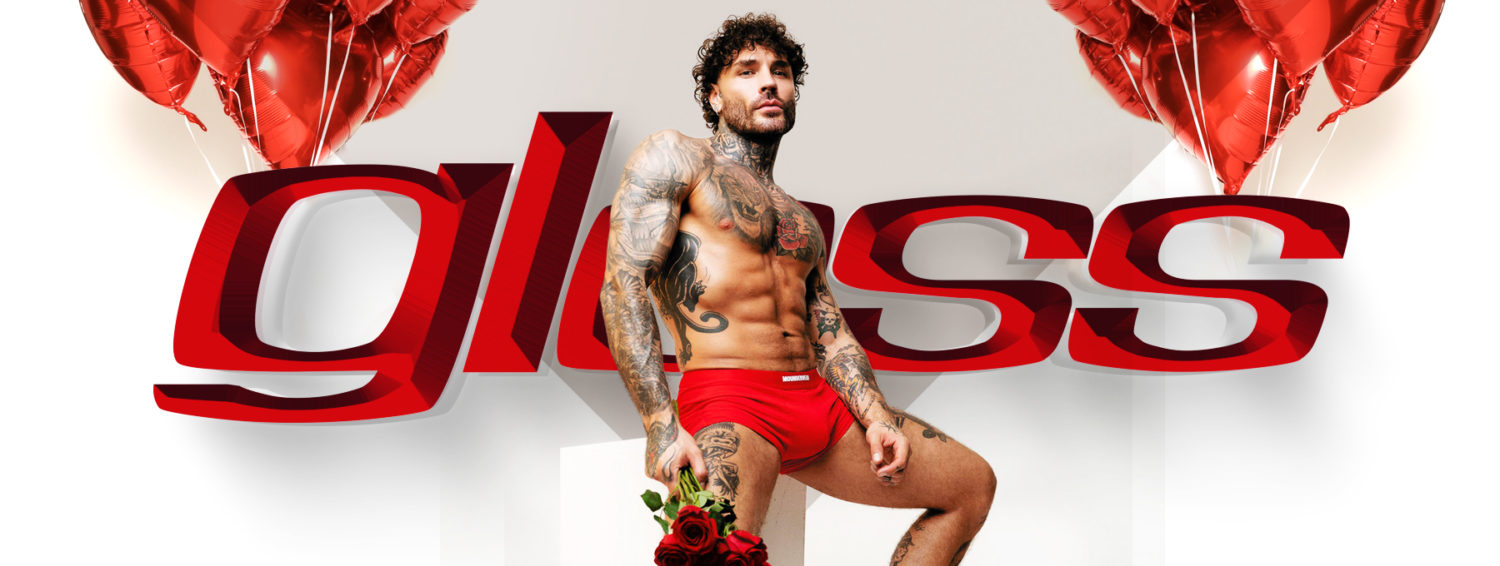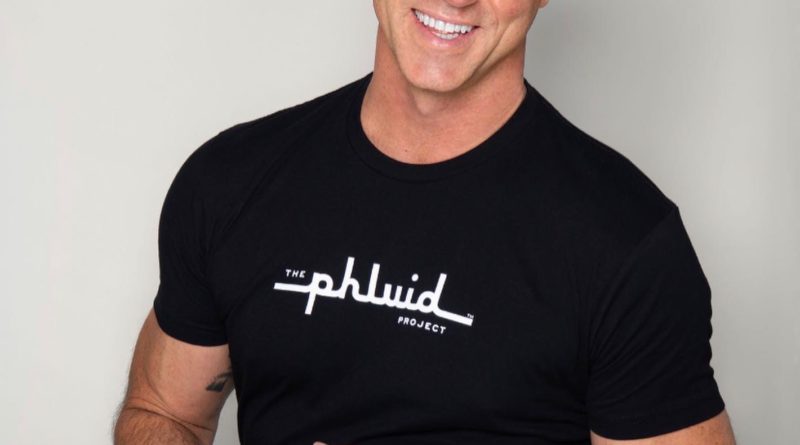Rob Smith Is Winning
Why the Phluid Project founder left the corporate world to promote gender inclusivity
By Sarah Bricker Hunt
 Thanks to the era of “new media,” where no stone is left unturned when it comes to invading the privacy of every public figure from social media influencers to the Hollywood elite (and not-so-elite), you’d be hard-pressed to find more than a handful of influential people who are truly as good as they’d like us all to believe. Few and far between are people like Mr. Rogers, Dolly Parton and, apparently, Tom Hanks. I’d like to humbly request we add a new name to the nice list: Rob Smith, founder of The Phluid Project. Here’s my case.
Thanks to the era of “new media,” where no stone is left unturned when it comes to invading the privacy of every public figure from social media influencers to the Hollywood elite (and not-so-elite), you’d be hard-pressed to find more than a handful of influential people who are truly as good as they’d like us all to believe. Few and far between are people like Mr. Rogers, Dolly Parton and, apparently, Tom Hanks. I’d like to humbly request we add a new name to the nice list: Rob Smith, founder of The Phluid Project. Here’s my case.
First of all, Smith spent a good chunk of time at the beginning of our recent call trying to figure out how to tag my LinkedIn to a recent post he shared of an article I wrote about an upcoming collab between Phluid and the Detroit Pistons. “Come on, Rob. I can do this,” he assures himself (and me). “Really, it’s fine,” I tell him. “I just always try to give credit to authors. It’s important,” he insists. Eventually, we figure it out, and you know what? It does feel nice to get that recognition. Score one for the guy who seems to thrive on making other people feel better. We could use more of that in 2024.
Smith knows a lot about how important validation can be, growing up as a closeted kid in Grosse Pointe, Michigan in the ’80s. He’s nearly in tears when I ask about those growing-up years (oops). But in what has already become signature Rob Smith behavior to me, he starts off by making sure I know that this difficult time in his life had nothing to do with his supportive family. “I’ll start off there. I have a wonderful family — I love them so much,” he says. “But a young kid doesn’t understand. I mean, your school is your world, and words that I heard all the time as a kid… ‘sissy, faggot…’ you hear those words and you intuitively, instinctively understand that being gay is dangerous.”
As much as he knew his family loved him, Smith says he was somehow afraid they might disown him if he didn’t hide his queerness. His brothers played football and baseball and his dad was a Pittsburgh Steeler. “And I was the creative kid. I loved theater and art and playing with my sister’s dolls,” he explains. By high school, “I’d butched myself up,” he recalls, joining the football team and hoping the change would make it easier to go through life. “And I finally had friends, but I don’t know if it was fully authentic.”
Before he came out, Smith says, he couldn’t fully accept his family’s love because he didn’t feel they knew him authentically. “I just didn’t fully receive their love because I didn’t know if they would really fully love me if they knew I was gay,” he remembers. “That was my own voice talking to me.”
Smith attended Michigan State University after high school, and then, he was gone. Miami Beach was calling, and it was hard to imagine a place more polar opposite to East Lansing or a more affirming atmosphere in which to come out in his early 20s. Still, coming out to his family was a daunting prospect in the late ’80s. True to those “he’s a really good person” vibes, Smith was worried more about protecting them than how he was feeling. “It was this time when you came out and usually followed that up with ‘I’m also HIV positive,’” he says. “I was so afraid to tell them because I knew they’d feel like ‘My son’s gonna have AIDS and die.’ There was a lot of trauma around coming out to your family because of the HIV crisis. They weren’t just worried about you getting through life as a gay person. They were worried about you living.”
After college, Smith’s career path followed a jet-fueled trajectory many fashion industry pros would envy. As he scaled the corporate ladder, executive vice president positions at major corporations (Macy’s and Victoria’s Secret) led Smith to the Global Chief Product Officer role at Haddad Brands (Nike, Levi’s, Jordan, Hurley and Converse). A quick trip through Smith’s LinkedIn reveals all the expected corporate lingo from an era he left behind in 2017: lots of “vertical retail growth” and “positioning the company” fodder. And then there’s a shift — a good guy shift, if you will, from corporate executive to the founder of Phluid, a gender-free clothing, accessory and beauty brand targeting the LGBTQ+ community. His role at Phluid now encompasses the organization’s educational aims, which has him traveling to companies as a diversity coach and consultant on gender inclusivity policies and gender-expansive practices.
“We are Phluid,” a page on the brand’s website reads. “Phluid in our expression, externally to the world and internally to ourselves. Phluid means dissolving the artificial boundaries of gender, skin color, and status, we and they. Phluid means following like water, free from contracts we never agreed to sign. Phluid means embracing the core idea that this is our world and that the way things are is unrelated to how things could be.”
“Honestly, a big part of creating Phluid was making my little self proud,” Smith says. “It’s something that maybe my younger self would look at and say ‘Wow. I’m really proud of you.’ Because I shut him out at 14 years old. I erased him.”
These days, Smith’s trips home to Michigan include family visits and, often, a little philanthropy and community-building. For the first time, Phluid is partnering with a pro sports franchise through a line of all-gender apparel created by Smith that was released in March. Fans can purchase “Basketball for All” sweatshirts, T-shirts and hats at Pistons313shop.com and at the team store in Little Caesars Arena.
Smith stresses that the Pistons project is about more than a simple clothing collaboration — in fact, he feels strongly that sports can be a gateway to LGBTQ+ acceptance all over the world. “It’s about changing people’s hearts and minds in a place where there is rampant transphobia and homophobia,” he says. “You’re tapping into a huge community of players and massive fan bases. If there is some way to have sports open up to show inclusion and acceptance for all — not just queer folks — I think it’s a game changer that sets the stage for many organizations to follow.”
Unsurprisingly, Smith only had good things to say about working with the Pistons team, from the support staff all the way up to the executive suite. “The team has been amazing. They have really been leaning into wanting to do what’s right and showing what real inclusion looks like for queer folks,” he says. “Whatever is going on with their season, the thing is that winning comes in many forms, as far as I’m concerned. And they are winning in this space of inclusion and celebration. The values of their organization show in the way they treat people, and the way they’re willing to step up and be courageous — that’s winning, too.”
We could say the same thing about ultimate nice guy Rob Smith.
Sarah Bricker Hunt, a proud Eastern Michigan University alum and the managing editor for Pride Source/Between The Lines, believes in the power of intentional journalism focused on people building their communities through everyday acts of love and service.

